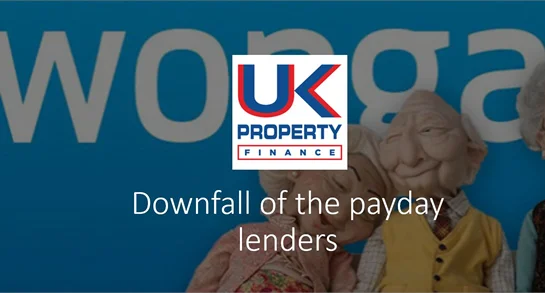The Downfall of the Payday Lenders

At the risk of causing controversy, the downfall of Britain’s most prominent payday lenders didn’t come as the biggest shock. Considered by critics to be the highwaymen of the 21st century, payday lenders in general didn’t have the most polished of reputations to begin with.
Nevertheless, it took the spectacular collapse of Wonga, Britain’s biggest payday lender, to kick the deterioration into overdrive. When Wonga collapsed in the wake of a wave of compensation claims, it still had more than 200,000 customers with no idea what to do next.
A figure that demonstrates just how severe Wonga’s compensation woes were and still are
But given the fact that Wonga was once touted for a flotation that would have valued the company in excess of $1 billion, what exactly went wrong? Or more importantly, what went wrong for the entire payday lending industry in the United Kingdom?
Far from a single point of contention, there were a handful of prevalent issues plaguing both the industry and its customers from day one. some of which critics argue should never have been tolerated in the first place.
Extortionate borrowing costs
For example, Wonga wasn’t even close to being the worst offender on the market by way of borrowing costs. Nevertheless, the company still displayed a representative interest rate of 5,853% APR on its website. Additional charges included £10 loan extension fees, £5.50 transmission fees, and standard £20 late payment fees. All of which added up to millions of customers borrowing small amounts of money and ending up out of their depths in debt.
To put things into some kind of context, secured loans can typically be arranged at a much lower interest rate of around 3.5%. Penalties associated with repayment issues can also be considerably less severe with secured loans.
Payday lenders routinely argued that just as long as the borrower fulfilled their repayment obligations as agreed, they’d be looking at competitive and affordable overall borrowing costs. As far as the critics were concerned, there was never any justification for these kinds of interest rates and borrowing costs.
Oversimplified application processes
It’s also argued that payday lenders in general make it far too easy for pretty much anyone to access cash they really couldn’t afford to borrow. The typical payday loan application process demands very little personal information and involves few formal checks of financial status. As a result, millions were able to take on debts they neither needed nor could afford, quickly falling into an inescapable debt spiral.
At which point, payday lenders were accused of doing little to help. In fact, many companies’ profits were generated primarily by the additional borrowing costs and penalties levied on those who fell into difficulties.
Targeting vulnerable customers
If all this wasn’t enough, major and minor payday lenders alike have been routinely accused of deliberately targeting vulnerable demographics. From the unemployed to the elderly to everyday households struggling to make ends meet, payday loans have been marketed directly at those most likely to struggle with the subsequent debt. Official advertising watchdogs have confirmed this is indeed the case.
So rather than simply taking advantage of individuals in vulnerable positions, many payday lenders were deemed to have deliberately targeted them in the first place. The result of which was the kinds of extensive compensation claims that led to the downfall of Wonga. And if a once-enormous financial powerhouse like Wonga was unable to remain afloat, what chance did the rest of the industry have?
A way out?
Secured consolidation loans have proved useful for many who’ve accidentally fallen into a debt spiral. It’s a facility that works by combining all debt-related outgoings into a single loan at a far more affordable rate of interest. Consolidation enables struggling borrowers to take back control and make enormous savings.
Whenever moving unsecured debt to a secured basis, the consequences of not repaying the new loan should be carefully considered before going ahead.
In a nutshell…
The downfall of Wonga served as a stark reminder of the risks associated with high-interest borrowing out of pure desperation. The lesson learned for the borrower is that if you’re struggling to make ends meet as they are, the last thing you want is more debt to deal with.
